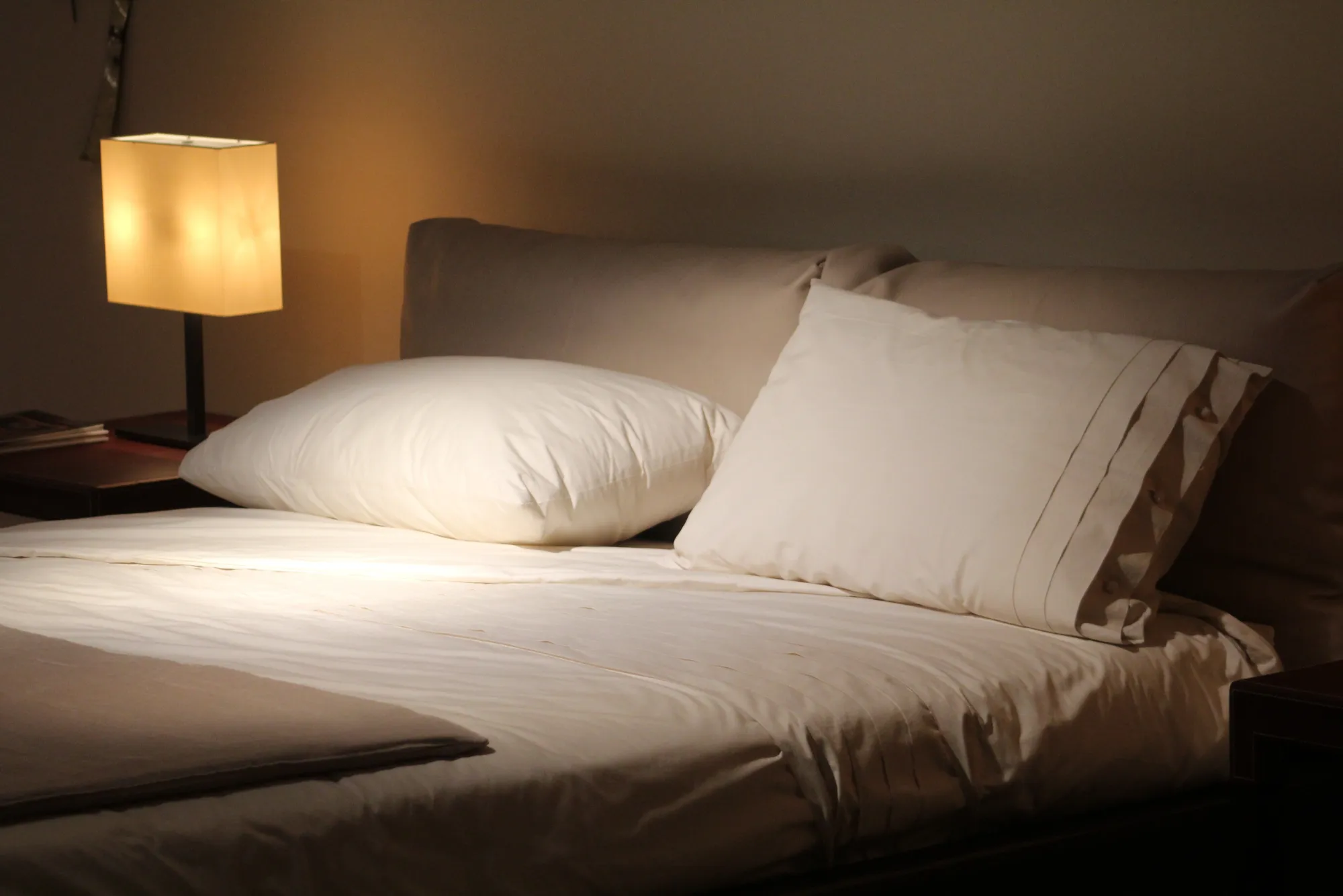When you sink into the crisp, luxurious sheets of a hotel bed, it’s easy to feel pampered. The secret behind that indulgent experience lies in the materials used by top-tier bed linen suppliers. High-quality hotel linens are crafted to balance comfort, durability, and aesthetics, ensuring guests enjoy a restful stay while the linens withstand frequent use and laundering. But what exactly goes into creating these exceptional linens? In this article, we’ll explore the materials that define premium hotel bedding, their benefits, and why they matter for hotels and guests alike.
Why Material Choice Matters for Hotel Linens
The materials used in hotel linens play a pivotal role in guest satisfaction. From softness and breathability to durability and ease of maintenance, the right fabrics elevate the sleep experience while meeting the practical demands of hospitality. Hotels prioritize linens that feel luxurious, look pristine, and endure the rigors of daily use. This balance is achieved through careful material selection, often sourced from trusted bed linen suppliers who specialize in hotel bedding wholesale.
Comfort and Guest Experience
Guests associate high-quality linens with a memorable stay. Soft, smooth, and breathable fabrics create a welcoming sleep environment, encouraging relaxation and rest. Materials that wick moisture, regulate temperature, and feel gentle on the skin contribute to a luxurious experience that guests remember long after checkout.
Durability and Longevity
Hotels require linens that can withstand frequent washing, high temperatures, and constant use without losing their appeal. Durable materials reduce replacement costs and maintain a consistent aesthetic, which is why hotel bedding wholesale suppliers prioritize fabrics that combine strength with sophistication.
Sustainability and Aesthetics
Modern hotels also consider sustainability and visual appeal. Eco-friendly materials and those that maintain their color and texture over time align with both environmental goals and the need for a polished, professional look.
Key Materials in High-Quality Hotel Linens
High-quality hotel linens are typically made from a select group of materials known for their comfort, durability, and versatility. Below, we explore the most common fabrics used by bed linen suppliers and why they’re favored in the hospitality industry.
Cotton: The Gold Standard for Hotel Bedding
Cotton is the cornerstone of luxury hotel linens, prized for its softness, breathability, and versatility. It’s no surprise that most high-end hotels source their bedding from hotel bedding wholesale suppliers who specialize in premium cotton fabrics.
Why Cotton Excels
-
Softness: Cotton feels naturally soft against the skin, making it ideal for sheets, pillowcases, and duvet covers.
-
Breathability: Its ability to wick moisture and regulate temperature ensures guests stay comfortable throughout the night.
-
Durability: High-quality cotton, such as long-staple varieties, resists pilling and tearing, even with frequent laundering.
Types of Cotton Used in Hotel Linens
-
Egyptian Cotton: Known for its long fibers, Egyptian cotton produces ultra-smooth, durable linens with a luxurious sheen. It’s a favorite for high-end hotels aiming to impress.
-
Pima Cotton: Similar to Egyptian cotton, Pima cotton offers softness and strength, often at a slightly lower cost.
-
Supima Cotton: A premium subset of Pima, Supima cotton is grown in the U.S. and is renowned for its exceptional quality and durability.
-
Combed Cotton: This type undergoes a combing process to remove short fibers, resulting in smoother, stronger linens.
Cotton linens with a thread count between 200 and 400 are common in hotels, offering a balance of softness and durability without feeling heavy or overly dense.
Percale and Sateen Weaves
The weave of cotton linens significantly impacts their feel and performance. Two popular weaves in hotel bedding are percale and sateen.
Percale
-
Characteristics: Crisp, lightweight, and breathable with a matte finish.
-
Benefits: Ideal for warm climates or guests who prefer a cool, crisp feel. Percale is highly durable and maintains its structure through repeated washes.
-
Use Case: Often used for sheets and pillowcases in luxury hotels.
Sateen
-
Characteristics: Smooth, silky, and slightly glossy with a soft drape.
-
Benefits: Offers a luxurious, buttery feel that appeals to guests seeking indulgence. Sateen is less prone to wrinkling than percale.
-
Use Case: Common in high-end duvet covers and fitted sheets.
Both weaves are popular among bed linen suppliers, as they cater to different preferences while maintaining the durability needed for hotel use.
Linen: Rustic Elegance
Linen, made from the flax plant, is another material gaining popularity in upscale hotels. Its natural texture and relaxed aesthetic appeal to boutique properties and eco-conscious brands.
Why Linen Stands Out
-
Breathability: Linen is highly breathable and moisture-wicking, making it perfect for warm climates.
-
Durability: Linen fibers are strong, ensuring linens last through years of use and washing.
-
Eco-Friendly: Flax requires fewer resources to grow than cotton, making linen a sustainable choice.
-
Aesthetic: Linen’s slightly wrinkled, natural look adds a touch of rustic charm to hotel rooms.
While linen may feel less smooth than cotton initially, it softens with each wash, offering a unique blend of comfort and character. Hotels sourcing from hotel bedding wholesale suppliers often choose linen for its sustainability and distinctive style.
Tencel (Lyocell): The Sustainable Choice
Tencel, a brand name for lyocell, is a man-made fiber derived from wood pulp, often eucalyptus. It’s celebrated for its eco-friendly production process and exceptional comfort.
Benefits of Tencel
-
Softness: Tencel is incredibly soft, rivaling high-quality cotton in feel.
-
Moisture-Wicking: Its ability to absorb moisture makes it ideal for guests prone to night sweats.
-
Sustainability: Tencel is produced in a closed-loop process, minimizing environmental impact.
-
Hypoallergenic: Naturally resistant to dust mites and bacteria, Tencel is a great choice for guests with allergies.
Tencel is increasingly popular among bed linen suppliers focused on sustainability, as it combines luxury with environmental responsibility.
Polyester and Blends: Budget-Friendly Durability
While pure cotton or linen dominates luxury hotels, polyester and cotton-polyester blends are common in mid-range properties due to their affordability and durability.
Why Polyester is Used
-
Durability: Polyester is highly resistant to wear and tear, making it suitable for high-traffic hotels.
-
Wrinkle Resistance: It maintains a crisp, clean look with minimal ironing.
-
Cost-Effective: Polyester blends are less expensive, allowing hotels to manage budgets without sacrificing quality.
However, pure polyester can feel less breathable and may not offer the same luxurious feel as cotton or Tencel. Blends with at least 50% cotton are often preferred to balance comfort and durability.
Bamboo: Softness with an Eco-Friendly Edge
Bamboo-derived fabrics, often marketed as bamboo rayon or viscose, are another option in high-quality hotel linens. While not as common as cotton, bamboo is gaining traction for its eco-friendly credentials.
Advantages of Bamboo
-
Softness: Bamboo fabrics are silky and smooth, offering a luxurious feel.
-
Sustainability: Bamboo grows quickly and requires minimal water and pesticides.
-
Antibacterial Properties: Bamboo naturally resists bacteria, making it a hygienic choice for bedding.
However, the environmental benefits of bamboo depend on the production process, as some methods involve chemical-intensive processing. Hotels opting for bamboo linens typically work with reputable bed linen suppliers to ensure sustainable practices.
Additional Considerations for Hotel Linens
Beyond the primary material, several factors influence the quality and performance of hotel linens. These elements are critical for hotels sourcing from hotel bedding wholesale suppliers.
Thread Count and Weave Density
Thread count, the number of threads per square inch, is often associated with quality. However, a higher thread count doesn’t always mean better linens. For hotel bedding, a thread count of 200–400 is ideal, offering a balance of softness, breathability, and durability. Excessively high thread counts can make linens feel heavy and less breathable.
Finishing Treatments
Many hotel linens undergo finishing treatments to enhance performance:
-
Mercerization: A process that strengthens cotton fibers and adds a subtle sheen.
-
Sanforization: Pre-shrinks fabrics to prevent shrinkage during laundering.
-
Wrinkle-Resistant Finishes: Applied to reduce ironing needs, especially for polyester blends.
These treatments ensure linens maintain their appearance and functionality over time.
Color and Design
White linens are a hotel staple, as they convey cleanliness and are easy to bleach. However, some boutique hotels incorporate subtle patterns or colors to align with their brand. High-quality dyes and fade-resistant treatments ensure linens retain their vibrancy.
Choosing the Right Bed Linen Suppliers
Selecting the right bed linen suppliers is crucial for hotels aiming to provide a premium guest experience. Reliable suppliers offer a range of materials, from Egyptian cotton to Tencel, and provide customization options to meet specific needs. When sourcing hotel bedding wholesale, consider the following:
-
Quality Certifications: Look for suppliers with certifications like OEKO-TEX, which ensures linens are free from harmful substances.
-
Sustainability Practices: Choose suppliers committed to eco-friendly production, especially for materials like Tencel or linen.
-
Bulk Ordering Options: Wholesale suppliers should offer competitive pricing and consistent quality for large orders.
-
Customization: Some suppliers provide tailored solutions, such as monogrammed linens or specific thread counts.
Partnering with reputable suppliers ensures hotels receive linens that meet both guest expectations and operational demands.
Caring for High-Quality Hotel Linens
To maximize the lifespan of hotel linens, proper care is essential. Here are some tips for maintaining the quality of bedding:
-
Washing: Use gentle detergents and avoid overloading washing machines to prevent fiber damage.
-
Drying: Dry linens at moderate temperatures to avoid shrinkage or weakening of fibers.
-
Storage: Store linens in a cool, dry place to prevent mildew and maintain freshness.
Regular maintenance ensures linens remain soft, clean, and inviting for guests.
Conclusion
High-quality hotel linens are defined by their materials, from the timeless luxury of Egyptian cotton to the eco-friendly appeal of Tencel and linen. By choosing the right fabrics, hotels can create a memorable guest experience while ensuring durability and sustainability. Whether sourcing from trusted bed linen suppliers or exploring hotel bedding wholesale options, understanding the materials behind premium linens is key to elevating any hospitality setting. With the right care and selection, these linens will continue to provide comfort and elegance for countless guests.








